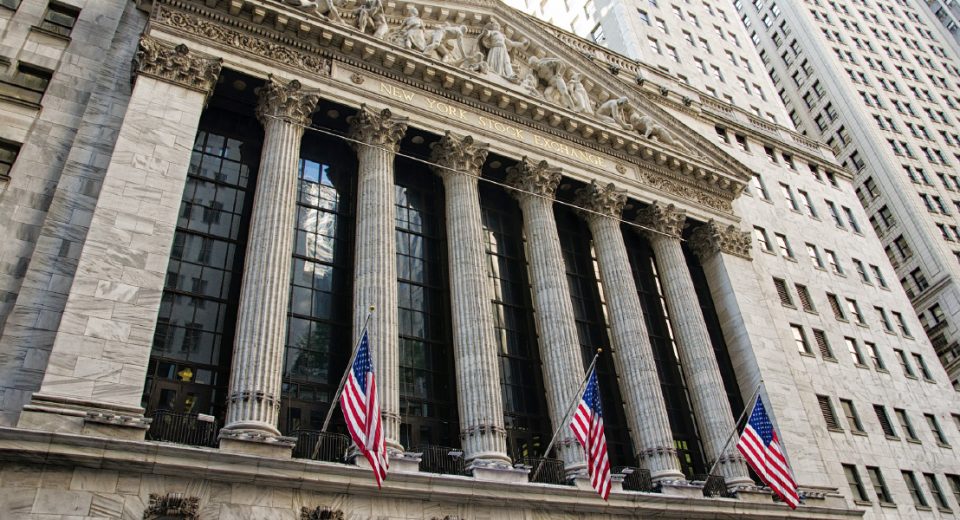Is the UK Stock Market Shrinking Due to Brexit?

An ongoing global slowdown is hurting the major stock markets worldwide. They are shrinking right before our eyes. De-equitisation, which means that companies are buying more shares than they are issuing, is now a global phenomenon that has been occurring since 2011. While the US stock markets have shrunk 2.5% since 2018, the available pool of UK equities is down 3% since then. In fact, strategists at Citigroup say that the UK stock market is one of the fastest shrinking stock markets globally.
UK companies are pursuing the highest number of buybacks since 2008, owing to depressed valuations and the low cost of borrowing. Such buybacks have surged 9.7% to reach $45 billion in the 12 months to June 2019, according to analysts at Bloomberg. In addition, the value of Initial Public Offerings (IPOs) declined 57% in the first six months of 2019.
Brexit is one of the key reasons behind this shrinkage, but not the only reason. Here is what we know.
Growing M&As and Buybacks Amidst Brexit
The Brexit crisis has suddenly made the UK market very attractive for increased M&A activities, much of which is being financed through debt. Dovish monetary policies have resulted in a huge de-rating of equity against debt, which means that debt is becoming cheaper than equity. In the UK specifically, there is a striking difference between the debt and equity, at 4.6 percentage points. As a result, buying back equity raises earnings per share, by reducing both the overall cost of funding and the share count. No wonder, an increasing number of companies are investing in buybacks.
There has been an overall delay in decision making by the top management across UK-based companies, due to huge uncertainties surrounding Brexit. Companies had been preparing for a hard Brexit with a March 2019 deadline, which was extended to October 31, 2019. These companies have refrained from IPOs, due to increased market volatility.
For an issuer, a higher reward premium translates into lower price, since companies might be forced to sell assets at a discount, to get higher yields, during times of geo-political instability. Such market conditions are not attractive for issuers. This is also one of the reasons for the surge in M&As.
Another reason for foreign investors picking-off UK companies one by one is a weakening Pound Sterling. The Great British Pound (GBP) is still trading below pre-Brexit levels against the US Dollar, which is why the acquisition of UK companies is becoming cheaper and easier. The acquisition of Sky by Comcast Corp and that of Shire Plc by Takeda Pharmaceutical Co in 2018 reduced the UK public market equity count by 3%. While such acquisitions have been in play since 2011, they have been more noticeable since 2016.
A Negative Effect on Investments
Brexit has majorly impacted domestically focused firms. In fact, during the first few days of the 2016 referendum, stock prices of domestic companies fell 20.8% on average. Multinational firms fared better, due to a subsequently weaker GBP. Apart from the currency effect, there are other benefits of internationalisation. Multinational firms are not devastatingly impacted by economic weakening in one particular region. Their spread of operations offers a hedge against exposure to economic risk in one particular country. According to a survey conducted by the Institute of Directors, 29% of UK companies either plan to relocate or have already relocated to counter Brexit uncertainties.
Corporate investments fell for four consecutive quarters in 2018, according to the Office for National Statistics, for the first time since the 2008 crisis. According to Refinitiv, 63% of global deal makers think the UK markets could become less attractive for acquisitions, while UK banks might be less relevant in deal making, post-Brexit.
This decline in investments could continue to affect new and fast-growing firms, which require uninterrupted investments to flourish and consequently start trading on the markets. Moreover, it will hinder capital expenditure by big firms, which are already facing a slow global economy and weakening demand.
When future policies remain uncertain, firms cannot plan for the long term. This has an indirect effect on job creation and, hence, disposable income.
Declining Manufacturing Levels
Declining disposable income means a dip in demand for consumer goods and consumer services. This also leads to a decline in consumer confidence in the economy. Between June 2016 and January 2019, the broad FTSE All Share UK Index fell 25.5% against the global stock market. Firms in the UK performed worse than both EU and US companies.
Manufacturers, as a result, have been finding it difficult to convince client companies to commit to new contracts, especially Asian and European firms. Along with a decline in overseas demand, the political crisis in May, after the resignation of Theresa May, and expectations of a hard-Brexit favouring PM coming to power, loomed over UK businesses. The Purchasing Managers’ Index (PMI) fell to 49.4 in May 2019, the lowest in 34 months.
A Global Phenomenon
As stated in the beginning, the shrinking of the UK stock market is not an anomaly. It is becoming clear that companies worldwide are finding cheaper capital elsewhere, with private equity and venture capital investors. Burdensome listing requirements and increased scrutiny are also making CEOs look for alternatives.
The effect of quantitative easing and post financial crisis Central Bank policies regarding cost of debt have also played a role.
For shareholders, reduced the amount of equity available means an increase in share price, if we believe the laws of supply and demand. This has been good for the post-2008 period of a bull-run in the financial markets. But, over the long term, the disappearance of investment opportunities spells doom for the global economy. Those who only invest in public companies could end up with limited options in the stock market, with lower returns.
Moreover, the due diligence process becomes challenging and risky, since private firms don’t have the same obligations as public firms to disclose their financials. These investments could be less liquid and riskier.
Almost three years after the Brexit referendum, UK companies are still grappling with uncertainty and confusion. Trading stocks at this time means putting in place stringent risk management measures.
Reference Links
- https://www.cityam.com/uk-manufacturing-sector-shrinks-34-month-low-may-brexit/
- https://www.businessinsider.in/stock-markets-are-shrinking/articleshow/69550270.cms
- https://www.bloomberg.com/news/articles/2019-06-28/another-victim-of-brexit-world-s-fastest-shrinking-stock-market
- https://www.refinitiv.com/en/brexit-impact-financial-markets
- https://blogs.lse.ac.uk/brexit/2019/03/04/how-brexit-has-hit-the-value-of-uk-firms/
- https://www.ons.gov.uk/economy/grossdomesticproductgdp/bulletins/gdpmonthlyestimateuk/december2018




